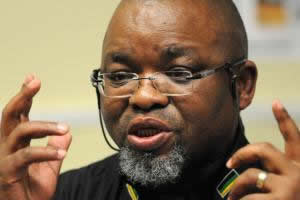African ‘lions’ can still rise-IMF/World Bank
spring in their step if governments deepen reforms and maintain prudent policies, the World Bank and IMF say.
Even as World Bank President Robert Zoellick warned of a “darkening outlook” for developing nations projected by European and US debt woes, top bank and fund officials sought to preserve a guarded positive outlook for sub-Saharan Africa.
While still the planet’s poorest region, Africa has boasted more of the world’s fastest-growing economies than any other zone in the last decade, and emerging market investors and analysts have been enthusing about its “lion” economies leaping forward, largely on the back of minerals and oil exports.
After suffering a temporary growth rate collapse inflicted by the 2008-2009 financial crisis, Africa rebounded strongly within a year.
IMF and World Bank economists are still sticking to an average regional growth forecast of around five percent, although they are ratcheting back a few notches to take into account the storm clouds looming over global growth prospects.
“Providing the world economy continues to grow at four percent, Sub-Saharan Africa, the low-income countries should do reasonably well,” Abebe Selassie, assistant director of the IMF’s Africa Department, told Reuters.
But there is clear recognition that Africa, despite being far less integrated than other regions into global trade and finance flows, will not escape impact if growth and demand fall in the advanced economies of Europe and the United States.
“At a time when Africa is doing its best ever, it is now certainly at risk of seeing growth diminish, and that of course we’re very concerned about,” the IMF’s Director of the African Department, Antoinette Sayeh, told Reuters this week.
One of the biggest worries of IMF and World Bank officials is that another external shock, and the internal economic’ political and social pressures it might generate in African states, could divert African governments from the positive path of policy reforms and improved budget management that had underpinned the region’s buoyant growth in the last decade.
“Now, the political climate for continuing those reforms would be even more tense at a time of fiscal pressures,” the Bank’s Vice President for Africa Obiageli Ezekwesili said.
“If they take their hands off from the reins of reform . . . it would be devastating, because it would reverse all the gains that have been made in a decade,” she told Reuters.
At the IMF/World Bank meetings this week, Zoellick made a point of warning about the negative headwinds for developing countries that could swirl out from a global downturn.
He said falling demand and investor confidence in advanced economies, combined with volatile and high world food prices – which have triggered riots in Africa in the past – could lead to rising protectionism and of a “retreat to populism.”
“This is not the time to take the wrong policy measures, this is the time to sustain the right policy measures because it matters for recovery,” Ezekwesili said.
She cited the imposition of price controls as an example of what would be a policy mis-step, recommending instead targeted “safety net” measures for the most poor and vulnerable that would still allow the market to regulate supply and demand.
International charity group and development advocate Oxfam said many African states had had to cut education, health, agriculture and social spending in the last two years.
“We’re expecting donor aid budgets to be slashed, and the longer this crisis continues, the deeper the impact for Africa and particularly for the poorest people,” Oxfam spokesperson Caroline Pearce told Reuters.
She urged the G20 group to try to tame speculation fueling food price volatility and to find innovative ways to finance development in Africa.”
The IMF says a setback in US or European recovery could have “substantial spillovers” to Sub-Saharan Africa, undermining prospects for exports, remittances, official aid and private capital flows. But experts warn impacts will differ widely across such a varied region of 44 countries. – Reuters.







Comments